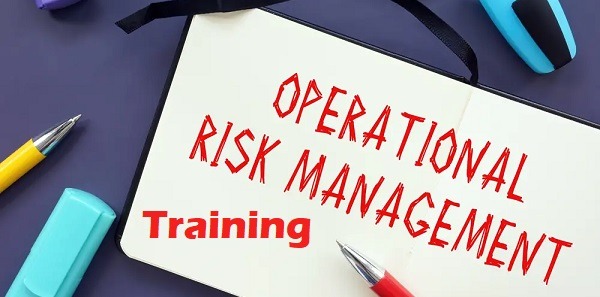Market, technique, technology, and product changes have altered the operational environment and sped up the growth of operational risk management. Directors must disclose far more information on the risks they manage and the efficacy of the controls they put in place to prevent or mitigate these risks, according to the regulators of financial and public firms. There is also a growing understanding that operational factors, rather than financial risk, can account for a large portion of earnings volatility. The necessity for an effective Operational Risk Management system in organisations has been brought on by all these changes.
Operational Risk Management (ORM) is the process of identifying, assessing, and mitigating risks that arise from day-to-day operations within an organization. It focuses on managing risks associated with people, processes, systems, and external events that could negatively impact an organization’s objectives, reputation, financial stability, or regulatory compliance.
Why ORM Training is Necessary?
- Mitigating Financial Losses – You can minimize financial losses from operational failures by training employees in operational risk management, enabling them to identify, assess, and mitigate potential risks.
- Enhancing Business Continuity – You will maintain business continuity by identifying vulnerabilities, implementing preventive measures, and training employees in operational risk management to identify threats, develop contingency plans, and minimize the impact of unexpected events.
- Regulatory Compliance – The banking industry must implement robust operational risk management practices to comply with regulatory requirements. Training employees in this area ensures compliance, preventing penalties and legal issues.
- Improved Decision-Making – ORM training empowers employees to understand risk factors, assess their impact on business, and take informed actions to mitigate risks, fostering a risk-aware culture and improving decision-making while reducing operational failures.
- Safeguarding Reputation and Stakeholder Trust – Investing in operational risk management training demonstrates organizations’ commitment to proactively manage risks, protect stakeholders’ interests, and maintain a positive reputation, fostering trust among customers, investors, employees, and the general public.
- Increasing Efficiency and Effectiveness – Training employees in a structured approach to operational risk management enhances business process efficiency, effectiveness, and resource utilization, leading to improved operational performance by identifying inefficiencies, eliminating redundancies, and streamlining operations.
- Promoting a Risk-Aware Culture – Training employees in operational risk management cultivates a risk-aware culture, empowering them to proactively identify and report risks, fostering a collaborative environment of shared responsibility.
This course provides the most comprehensive training to ORM coordinators and unit staff to help them understand and implement the key tools of operational risk management within their respective functions. It covers a framework and methodology for measuring and modeling operational risk, how to identify, analyze, measure and manage risks by employing models and methodologies and the types of software and tools used for effective operation risk management including:
- Risk Identification – Operational Risk Management begins with identifying what can go wrong. As a best practice, a control framework should be used or developed to ensure completeness. Identifying risks begins with scenario analysis — taking a look at the challenges facing the business and pinpointing areas that could disrupt operations or pose another risk to the organization.
- Risk Assessments – Once the risks are identified, the risks are assessed using an impact and likelihood scale, also known as a Risk Assessment Matrix. At this stage, risks are categorized by type of risk and level of risk.
- Measurement and Mitigation – In the risk assessment, risks are measured against a consistent scale to allow the risks to be prioritized and ranked comparative to one another. The measurement also considers the cost of controlling the risk related to the potential exposure.
- Monitoring and Reporting – Risks are monitored through an ongoing risk assessment to determine any changes over time. The risks and any changes are reported to senior management and the board to facilitate decision-making processes.
- Using Key Risk Indicators – Key risk indicators play an important role in operational risk management and give advance notice of potential risks that could damage the organization; provide insight into possible weaknesses in an organization’s monitoring and control tools; and ongoing risk monitoring between risk assessments.
- Reporting Operational Losses and conducting Root Cause Analysis – RCA is a problem solving technique that provides a structured way to analyze a problem and identify the associated root cause.
COURSE OUTLINE
- Introduction to Operational Risk
- Basic Concepts
- Regulatory Treatment of Operational Risk under Basel II
- Operational Risk in Various Banking Sectors
- Operational Risk in Insurance
- Developing Objectives and Identifying Risks
- Estimating Potential Losses – Data
- Estimating Potential Losses – Loss Distribution
- Analyzing Risks
- Loss Prediction and Prevention
- Loss Control
- Loss Reduction and Risk Avoidance
- Risk Financing
- Measurement Framework
- ORM in Practice
- Enterprise-wide Risk Management
- Basic and Casual Models
- Legal Risk and Taxation Rules
- E-banking
- Systems and Software
- Case Study – Barings Bank

